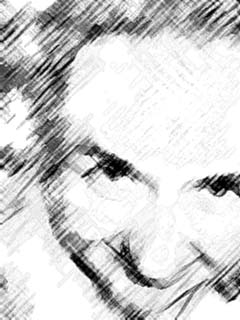That was then...
Looking for another document, I stumbled upon this one. After blowing the proverbial dust off it, it gave me some food for thought about why I entered, what I'm taking and what I'm leaving. I'll leave it in it's pure form for your own thoughts, given what you know about me.
In order to be consistent with my answer to "Strategies for Adapting to a New Culture," I have to admit I don’t know what to expect. And I am perfectly fine with that. As far as my assignment goes, however, I do have a general preference: As I mentioned to both my recruiter and placement officer, I do not want teaching to be my primary assignment. Instead, I’d like something that will utilize my skills (advising, organizing, problem-solving), add as much as possible to my professional growth, and maximize my potential contribution to the program.
Strategies for Adapting to a New Culture
Both my elementary and secondary educations were at urban public schools. Being a target for philanthropists and "do-gooders," urban schools attract a wide range of givers. Watching the wealthy and worldly come and go, each person thinking of his/her contribution as unique, taught me a lot about the best ways to add to, take from and ultimately embrace a new culture. I gradually came to notice that those who make the most significant, lasting contributions in any arena are themselves equally shaped and changed by the act of giving – they were the people who entered thinking they had at least as much to gain from an experience as they had to give to it. Drawing from these observations and encounters, I always enter a new environment with my antenna up and ready to receive signals – both signals of what is expected of me and signals of what I can expect – before I assume what I am there to get or give. In any new culture there will be great differences to face, but I have always been able to manage potential conflicts and misunderstandings by building a foundation on similarities. I attach my identity to who I am and the experiences I’ve had rather than my current circumstances or environment, allowing me to draw from others’ experiences, proudly share my own, and never get lost in the shuffle.
Personal and Professional Goals
With a long standing interest in the transformation and development of Eastern Europe, I am pleased to use an opportunity like the Peace Corps to learn from the area, not just about it. My past work experience involves politics, public policy and business and my interests center around how these three factors intersect. While I welcome a municipal or business development assignment, I would be most excited about a position centered on private/public interactions.
I worked my way through both high school and college and thus have been consistently confronted with the task of applying classroom lessons to the real world and intellectually exploring professional problems. With this background as my foundation, I am compelled by the convergence of, and frequent disharmony between, theory and implementation. I have also always been interested in development – initially local development and then international development and how private and public sectors help/hinder the process. My attraction to all of these factors leads to a fascination with public policy. Guided by the questions "How does this work?" "How should this work?" and "How could this work?" I would ultimately like to combine my interests in theory and practice by working in a hybrid of international business and international development.

